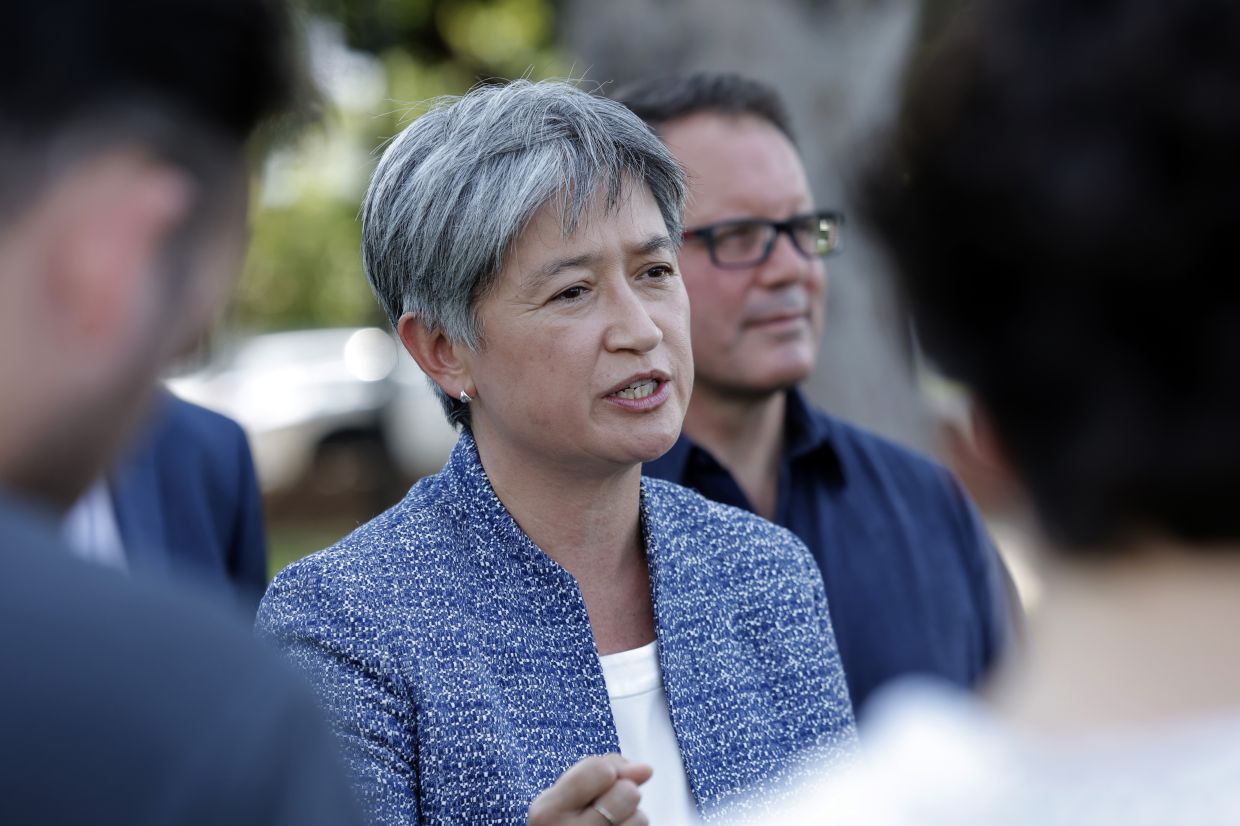Australian Foreign Affairs Minister Penny Wong has outlined her government’s ambition to “avert war and maintain peace” in the Indo-Pacific region
Wong addressed the National Press Club in Canberra, saying Australia wants to ensure there is a “strategic equilibrium” in Asia where “no country dominates, and no country is dominated.”
Wong said Monday that Australia did not want competition between the United States and China to “career into conflict.”
She warned that China continues “to modernise its military at a pace and scale not seen in the world for nearly a century with little transparency or assurance about its strategic intent.”
Australia’s foreign affairs minister also detailed the destabilising consequences of “coercive trade measures, political interference” and the reshaping of “international rules.” However, there was no specific mention of China in the remarks or of the trade restrictions Beijing has imposed on various Australian export commodities because of diplomatic tensions stretching back to 2017.
Wong told the audience in Canberra about her concerns for Taiwan, which China regards as a wayward province that could be retaken by force.
“Today I want to talk to you about how we avert war and maintain peace – and more than that, how we shape a region that reflects our national interests and our shared regional interests,” Wong said. “Those interests lie in a region that operates by rules, standards and norms where a larger country does not determine the fate of a smaller country.”
Wong said the Canberra government had to “lower the heat on any potential conflict, while increasing pressure on others to do the same.”
“A war over Taiwan would be catastrophic for all,” she said. “We know that there would be no real winners, and we know maintaining the status quo is comprehensively superior to any alternative.”
There has, so far, been no reaction in Beijing to Wong’s comments.
Relations between the two Indo-Pacific nations began to deteriorate in 2017 over growing concerns about alleged Chinese interference in Australia’s domestic affairs.
There followed further disagreements about Taiwan, freedom of navigation in the contested South China Sea and the origins of COVID-19, which was first detected in China.
However, Australia’s left-leaning government — elected almost a year ago — has made concerted efforts to ease tensions with China, Australia’s biggest trading partner.
Earlier this month Canberra agreed to suspend its appeal to the World Trade Organisation against China’s punitive tariffs on Australian barley, which Beijing has agreed to review.
Australian officials have said they were confident that China would scrap the tariffs, raising hope that restrictions on other exports, including wine, would also end.
SOURCE: VOA/PACNEWS













